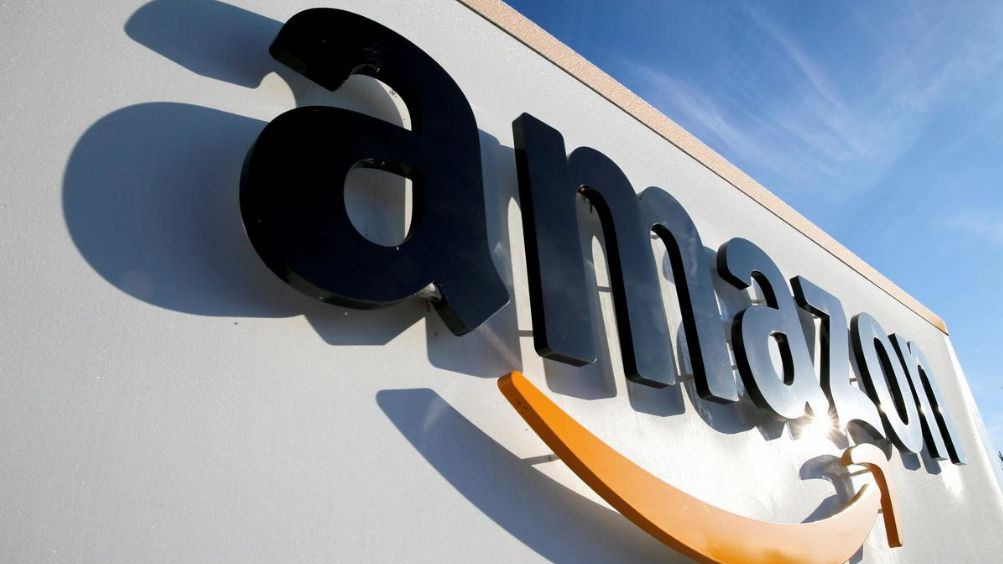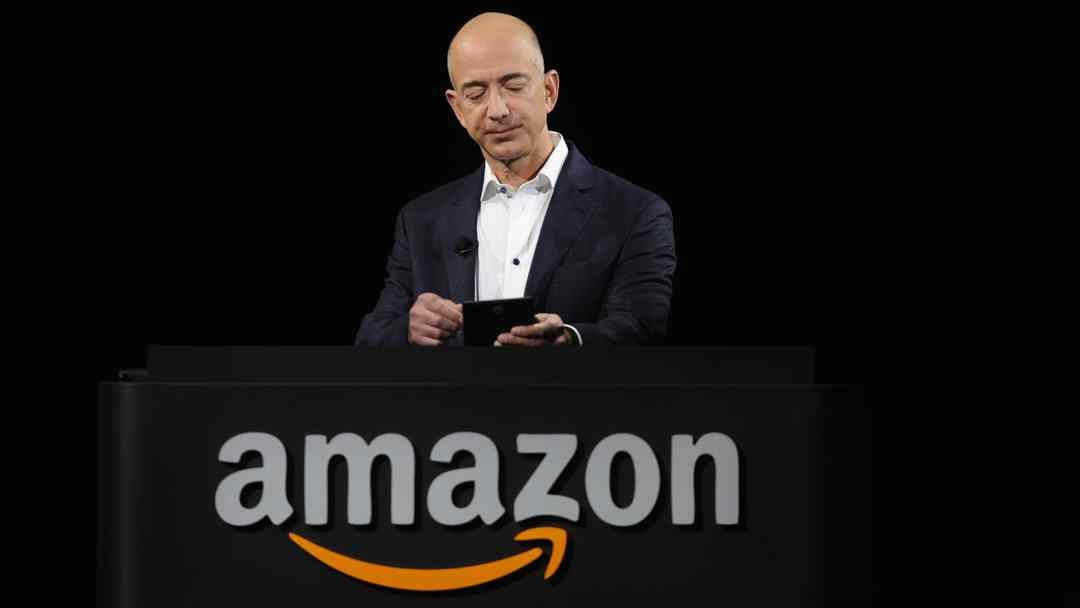
Editor's note: Hannan Hussain is a security analyst at the London School of Economics-South Asia Centre and an author. The article reflects the author's opinions, not necessarily the views of CGTN.
One of the perks of announcing plans on Instagram is that they are seldom binding, and often ambiguous. In a viral post on Monday, Amazon CEO Jeff Bezos announced the launch of the "Bezos Earth Fund," a 10- billion-U.S. dollar grant-issuing initiative aimed at supporting climate change interventions to save the planet.
The post takes an unsurprising exception to Amazon, Bezos's trillion-dollar company, which features nowhere within the climate protection plans. A 2019 environment report published by the company placed its own carbon footprint in 2018 at 44.4 million metric tons – larger than the annual emissions of Sweden. It also outlined a series of targets, such as the achievement of net zero carbon across Amazon by 2040.
For Bezos to present the Earth Fund as a service to climate protection – without aligning it with Amazon's ambitious net zero carbon and renewable energy targets – is a cause of considerable concern. Doing so would have promoted Amazon's own interests, including greater transparency to its stated "sustainability practices." Bezos outlined his support for "scientists, activists and NGOs" in his social media post – a framework for multi-stakeholder collaboration which the 2019 environment report did not stress enough.
Until now, Amazon has been billing its 21 sustainability partnerships and climate-friendly positions as tangible evidence of green leadership. These partnerships include one with The Center for Climate and Energy Solutions (C2ES) – an organization which focuses its work extensively on "global climate and energy" challenges. This "worldwide lens" defeats the actual purpose of collaborations: to measure Amazon's sizeable carbon footprint, and report on the progress accompanying it.
According to Amazon's Climate Pledge launched on September 19, 2019, the company has agreed to "measure and report greenhouse gas emissions on a regular basis." At present, this objective is met solely by Amazon's internal progress estimates, lacking credible third-party validation.
There is also a common thread that runs across Bezos's climate pivot. Both decisions – to form this week's Earth Fund and last year's Climate Pledge – arrived after Amazon's employees demanded climate action.
Over 1,600 company workers planned to walk out last September to protest Amazon's limited initiative on climate goals. The move – planned in consistency with the forthcoming UN Climate Action Summit – saw participation from the company's headquarters, as well as from offices in Toronto, Dublin, New York and Los Angeles. It is this circumstantial pressure that compelled Bezos to bring Amazon's Climate Pledge to the forefront: a commitment to achieving net zero carbon by 2040 and 100 percent renewable energy by 2030, without tailing behind the UN Paris Accord.

Monday's Instagram pledge is no different. In fact, it is an extension of this very reactionary logic. Emails seen by The Guardian last month reveal a multitude of threats and investigations directed at Amazon employees, who decided to publicize the company's role on climate. Legal and human resource representatives at Amazon cited "termination" as a potential consequence of continued public engagement, referencing the company's policy of "external communications" as a legal precedent. "As with any company policy, employees may receive a notification from our HR team if we learn of an instance where a policy is not being followed," said company spokeswoman Jaci Anderson.
Alarmingly, most of the employees targeted at Amazon continued receiving threats well after Bezos's Climate Pledge went into effect. The immediate result: a massive discord between Bezos's stated vision for climate-conformity, and Amazon's tendency to punish those who dare to bolster that very commitment.
One should also be cautious of Bezos's climate pledge given his periodic support for climate denial lobbies. Last year, Amazon emerged as one of the key corporate sponsors of Competitive Enterprise Institute (CEI), a Washington-based think tank that actively undermines the problem of climate change. Amazon representatives at one of the think tank's galas went public to acknowledge their financial support for CEI. They claimed that the contributions "will help advance policy objectives aligned with our [Amazon's] interests."
Bezos also lacks the typical reputation of a climate-friendly advocate who amplifies passionate appeals across global forums. Unlike consistent representation from Leonardo DiCaprio and Mark Carney, most of Bezos's contributions at platforms such as the World Economic Forum have revolved around themes of innovative leadership, success strategies, and organizational growth. Even the UN Paris Agreement, abandoned by the Trump administration and upheld by Amazon, was hardly a reference point across many of Bezos's high profile appearances, including his surprise visit to India this year.
Should the pledge of 10 billion U.S. dollars align with climate lobbyists pushing for clean energy and emissions reduction, it could plug the funding gap that has long divided U.S. environmentalists and corporate juggernauts. Part of winning over their trust is for Bezos to prioritize his own corporate ventures (most notably Amazon), and walk the talk on climate from the ground up.
For a credible climate fight to ensue, it is imperative that the rhetoric of "collective action" starts departing from Instagram handlers and gets institutionalized in a company's annual climate performance targets.
(If you want to contribute and have specific expertise, please contact us at opinions@cgtn.com.)